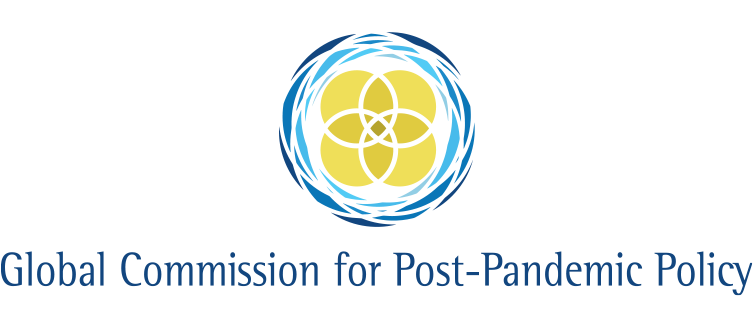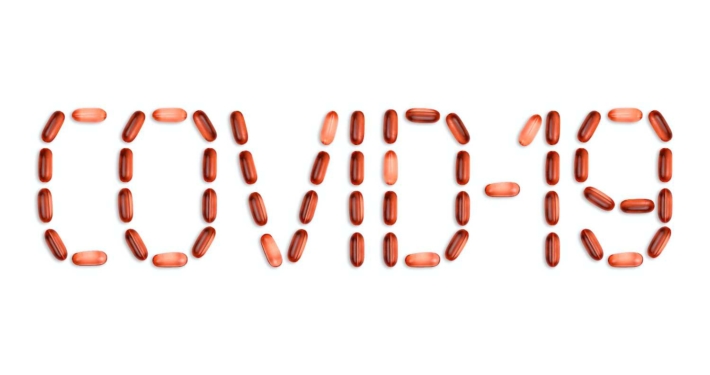The Pandemic, week to February 22nd
Health
In the United States, the cumulative tally of deaths attributed to COVID-19 crossed the grim landmark of 500,000, almost exactly a year from the first confirmed COVID-19 death in the country, on February 29th 2020. No other nation has lost more people to the virus than the United States.
Meanwhile, severe winter weather delayed millions of vaccine doses from delivery across the United States. In Texas, a shipment of over 730,000 vaccine doses was halted as a powerful storm knocked out power for millions. In New York City, the vaccine roll-out has similarly been brought to a standstill. The city now has fewer than 1,000 doses on hand. The White House estimates that a total of over 6 million doses has been held up by the extreme weather.
In the United Kingdom, the British government announced its intention to bring forward the date by which every adult in the nation will have received at least the first dose of a COVID-19 vaccine to July 31st, far faster than any neighbouring country. The UK’s vaccine roll-out has so far relied on the Pfizer-BioNTech and Oxford-AstraZeneca vaccines, shortages of which have bedevilled EU vaccination programmes. Already, one-third of British adults have received their first dose.
In Israel, nearly half of the country’s population of nine million has now received at least the first dose of the Pfizer-BioNTech vaccine—making Israel’s vaccine roll-out the global frontrunner. As a consequence, the government last week introduced the “Green Badge” system, administered by an App of the same name. Under the system, the Israeli government has begun to open up specific leisure activities to the public––but only to those who are fully vaccinated or have recently recovered from COVID-19. On that basis, Prime Minister Benjamin Netanyahu’s cabinet voted last week to open museums and shopping malls, with restaurants, event halls and conferences to follow in the next two weeks.
In South Korea, Prime Minister Chung Sye-kyun confirmed that the country’s vaccination programme will kick off this week. The first doses of the Oxford AstraZeneca vaccine are set to be administered on February 26th, with Pfizer-BioNTech vaccines also being administered from the following day. The South Korean government has also reached agreements with Moderna, Novavaxa and Johnson & Johnson for the supply of vaccines, and intends to vaccinate 10 million individuals with high-risk profiles by July.
This week, newly recorded COVID-19 cases continued their marked decline worldwide. This trend continues to be driven by strong improvements in Europe and increasingly dramatic improvements the United States, but case rates appear to be either dropping or holding steady in the vast majority of countries. Theprimary exception is central Europe, where cases are rising in Austria, the Czech Republic, Slovakia and Hungary. The Baltic states are also a cause for concern.
Economy
The Australian Bureau of Statistics published its January jobs report. The release confirms that the Australian economy is continuing its strong recovery. Unemployment fell from 6.6% in December to 6.4% in January. The Australian dollar rallied on the announcement.
In the United States, the Department of Labour released its weekly jobless claims data. Last week, new jobless claims rose to 861,000—a second increase in consecutive weeks. The figure for the previous week was 848,000, revised up from the initially announced 793,000. Before COVID-19, weekly American jobless claims had never topped 700,000. Nearly 10 million Americans remain unemployed.
This disappointing jobs data provided further impetus to Congressional Democrats, as the Democrat-controlled House of Representatives approved a budget blueprint including President Joe Biden’s $1.9 trillion stimulus package, on a straight party-line vote. Reportedly, House Democrats intend to draft and pass the full budget by the end of the month. The Democrat-controlled Senate is expected to pass the budget on another straight party-line vote shortly thereafter.
The Inter-American Dialogue—an American policy thinktank—and the Global Development Policy Centre at Boston University released a report on China’s economic diplomacy in Latin America. For the first time in fifteen years, China’s two largest policy banks—the China Development Bank and the Export-Import Bank of China—issued no new loans in the region in 2020. This reticence reflects not just the effects of the COVID-19 pandemic but also Latin America’s already fragile economic situation in 2019, which had stretched its ability to service its existing debts.
In Nigeria, the National Bureau of Statistics released its 2020 fourth quarter GDP estimates. From October through December, the Nigerian economy grew at an annualised rate of 0.11%—exceeding economists’ estimates. The news was a welcome sign for an economy hit hard by the mid-2020 oil-price crash precipitated by the COVID-19 pandemic. However, the International Monetary Fund warns that a slow vaccine roll-out—forced by competition for vaccine from the more advanced economies—may threaten the recovery of Africa’s largest economy.
Politics
The leaders of the Group of Seven (G7) nations met virtually to discuss the global vaccination campaign. President Joe Biden promised to deliver on a pledge to donate $4 billion to the global vaccine distribution over the next two years. Altogether, new commitments from the European Commission, the United States, Japan, Germany and Canada together more than doubled the G7’s contribution to COVAX, the World Health Organisation (WHO) global vaccine initiative. Nevertheless, with that total contribution reaching only $7.5 billion, the world remains a long way from an equitable regime of vaccine distribution.
In Israel, a secret prisoner-swap arrangement with Syria went public after leaks from an official familiar with the negotiations. Under the agreement, in return for the release of a young Israeli woman from detention in Syria, Israel has agreed to finance an undisclosed number of vaccine doses for Syria. The agreement was reportedly mediated by Russia, which Israel will pay to provide doses of its Sputnik V vaccine to the Syrian government. Now in its ninth year of civil war, Syria has yet to begin a vaccine roll-out.
In the Palestinian territories, a shipment of 20,000 doses of the Russian Sputnik V vaccine arrived in the Gaza Strip via its border with Egypt. The delivery was donated by the United Arab Emirates and organised by Mohammed Dahlan, a prominent former-Fatah politician living in exile in Abu Dhabi. The delivery arrived days after the West Bank-based Palestinian Authority managed to deliver only 2,000 doses of the same vaccine via Israel. The move appears calculated to discredit President of the Palestinian Authority Mahmoud Abbas ahead of national elections in which Abbas has blocked Dahlan from standing.
In Argentina, the country’s Health Minister Ginés González García resigned at the request of Argentinian President Alberto Fernández after reports that García had allowed individuals with close ties to the government early access to COVID-19 vaccines. The revelation came after well-known journalist Horatio Verbitsky—considered pro-government and an old friend of García’s—admitted that he had been vaccinated by the Health Ministry on García’s request.
GCPPP Newsletter
We now publish a weekly newsletter to inform friends and supporters of the Global Commission’s progress and to provide updates when new content is published. Please sign up here:


 Volodymyr Hryshchenko, Unsplash
Volodymyr Hryshchenko, Unsplash
 Adam Nieścioruk, Unsplash
Adam Nieścioruk, Unsplash
 visuals, Unsplash
visuals, Unsplash


